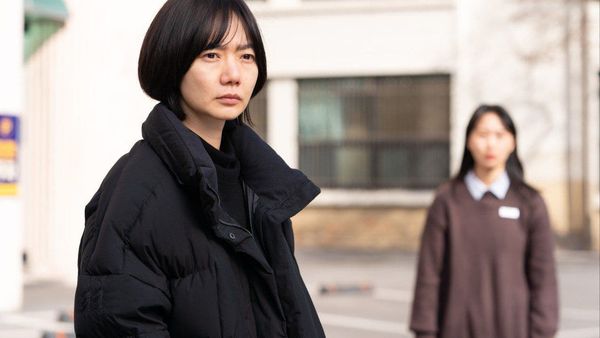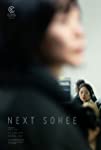Eye For Film >> Movies >> Next Sohee (2022) Film Review
Next Sohee
Reviewed by: Jennie Kermode

She’s dancing when we first see her. Wearing headphones. We can’t hear the music but we can see her response to it, the energy in her movements, the passion. She’s good – the best in the group, its other members will later agree. She’s full of life, but by the halfway point in July Jung’s incisive and devastating film, she will be dead.
Next Sohee screened as part of 2022’s Fantasia International Film Festival, an environment in which it’s not unusual to see films about the tragedy of lost life, about murders following which there are intensive investigations. Sohee (Kim Si-eun) is not murdered – she takes her own life – but there are multiple culpable parties. Shouldn’t this tragedy receive the same kind of investigation and follow-up? Shouldn’t people be held to account?

The film’s pre-publicity makes no secret of Sohee’s impending death, so watching the first half of the film feels a bit like watching a lengthy flashback. It’s no less riveting because of this, and it does nothing to undermine what comes later. Sticking to Sohee’s point of view, it presents the high school student as an intelligent young woman but one with very little power over the situation in which she finds herself, with neither the means nor the inclination to investigate why this is happening to her – like most young people, she simply accepts the world as it is, and it’s all too easy for her to be persuaded that if things seem impossible, that must represent a failing on her part.
Sohee is majoring in pet care but, the school’s work experience coordinator explains to her, students can’t necessarily be placed with companies doing the same type of work. She’s told that, given the size and importance of the company she is placed with, she’s very lucky to be working in one of its call centres. Completing the work in a satisfactory manner is obligatory if she is to graduate and go on to pursue her original ambition. She’s pragmatic about it, prepares well and works hard, but viewers will hear alarm bells ringing from the moment she is asked to sign a form containing the clause ‘The school shall not be responsible for at fault safety accidents’.
‘Human & Net, 2016 Best Call Centre,’ says a sign on the wall at work, but that’s very much a matter of perspective. Call centre workers inevitably face a lot of abuse, no matter how good they are, and that’s particularly difficult for a teenager to handle. Although her manager is sympathetic – which carries a cost of its own – abuse also comes from upper management. The hours are long and the pressure unrelenting. Attempts to recover by spending time with friends don’t work out well because they too are on work placements and too exhausted to support one another, snapping at each other instead. Sohee’s parents, who don’t understand what’s going on, are dismissive of her complaints. She faces relentless exploitation at work, gradually crushing her spirit, until a final, cruel twist proves too much.
Kim, in only her second big screen role, is superb. It’s only in a later flashback to that dancing scene from the start that the full impact of Sohee’s transformation sinks in – this bright and energetic girl who has been utterly broken. But who is to blame?
The second part of the film sees detective Oh Yoo-jin (Bae Doona) trying to find out, and facing opposition at every turn. She protests that suicides deserve attention, but the more that she investigates, the more she comes to feel that other people ought to be held liable. Of course, everyone passes the buck. We follow her through a series of escalations and the realisation that this is happening to numerous other young people – that it is a feature of the system, not a bug.
Bae also played a police officer in Jung’s previous film, A Girl At My Door, and though the two characters are very different, it’s notable that both face pressure from male colleagues who are uncomfortable about them being in that role. Though this is less of an issue in a city the size of Jeonju, the awareness that Oh will herself have faced difficult situations at work makes her outrage at what she discovers about abuse of the work experience system all the more telling. It’s a gem of a role for Bae and she fully embraces it, delivering a magnetic performance. Although the film’s subject matter may not sound engaging to everyone, she and Kim ensure that it grips throughout, giving it the emotional weight it deserves.
There’s a real sense of fury behind this film, and it feels very timely, not just because this form of exploitation is increasingly coming to light around the world but because of the growing public conversation about the treatment of workers more generally. The problem at its core is systemic but Jung makes a strong case to the effect that it must be addressed with the same vigour as one would expect if individuals were causing equivalent harm. Sohee is broken to the point where she cannot see any hope. Oh likewise makes some bleak discoveries, but her attitude – as someone older with a stronger sense of possibility – is very different. Next Sohee speaks for people who do not have a voice, and it does so eloquently.
Reviewed on: 05 Aug 2022















